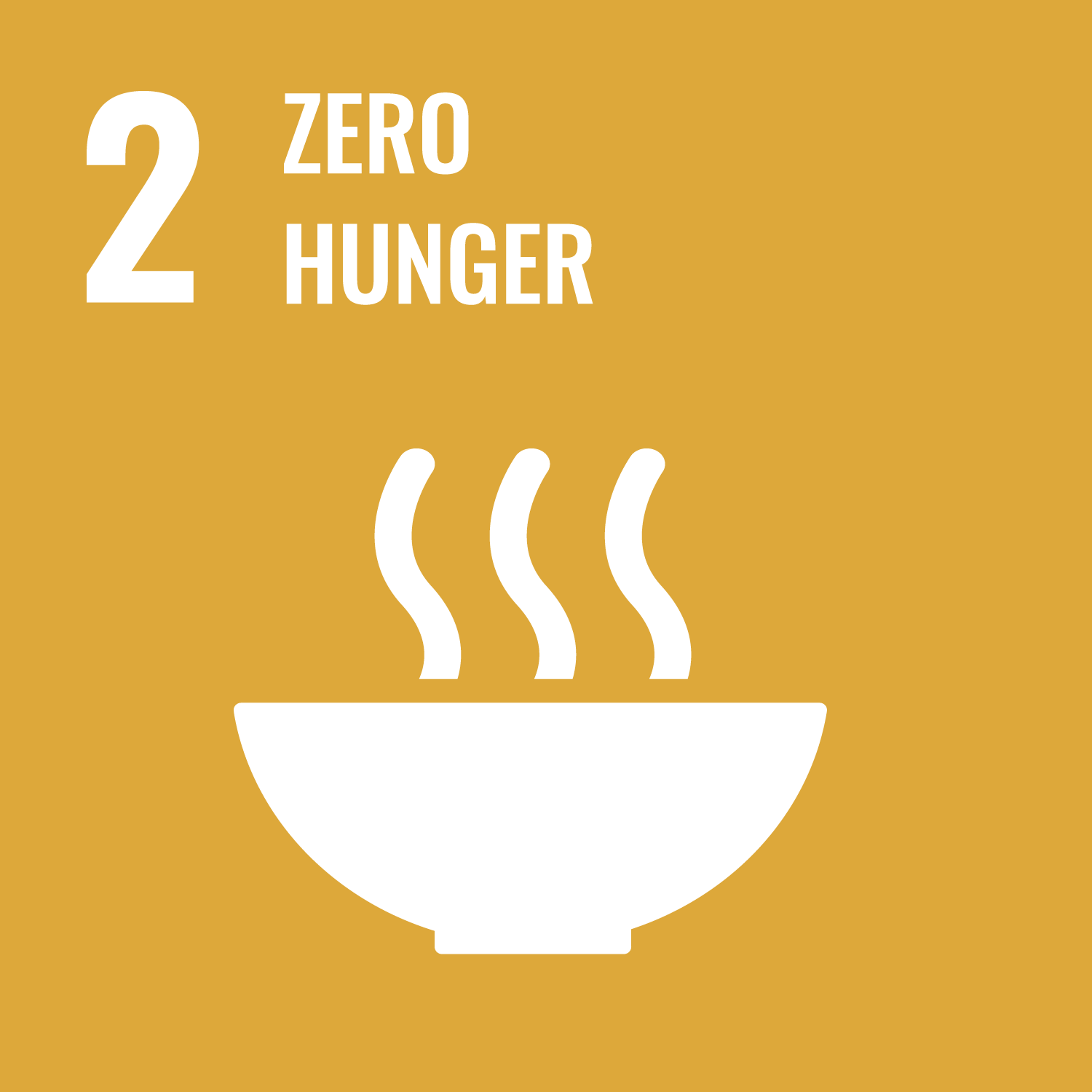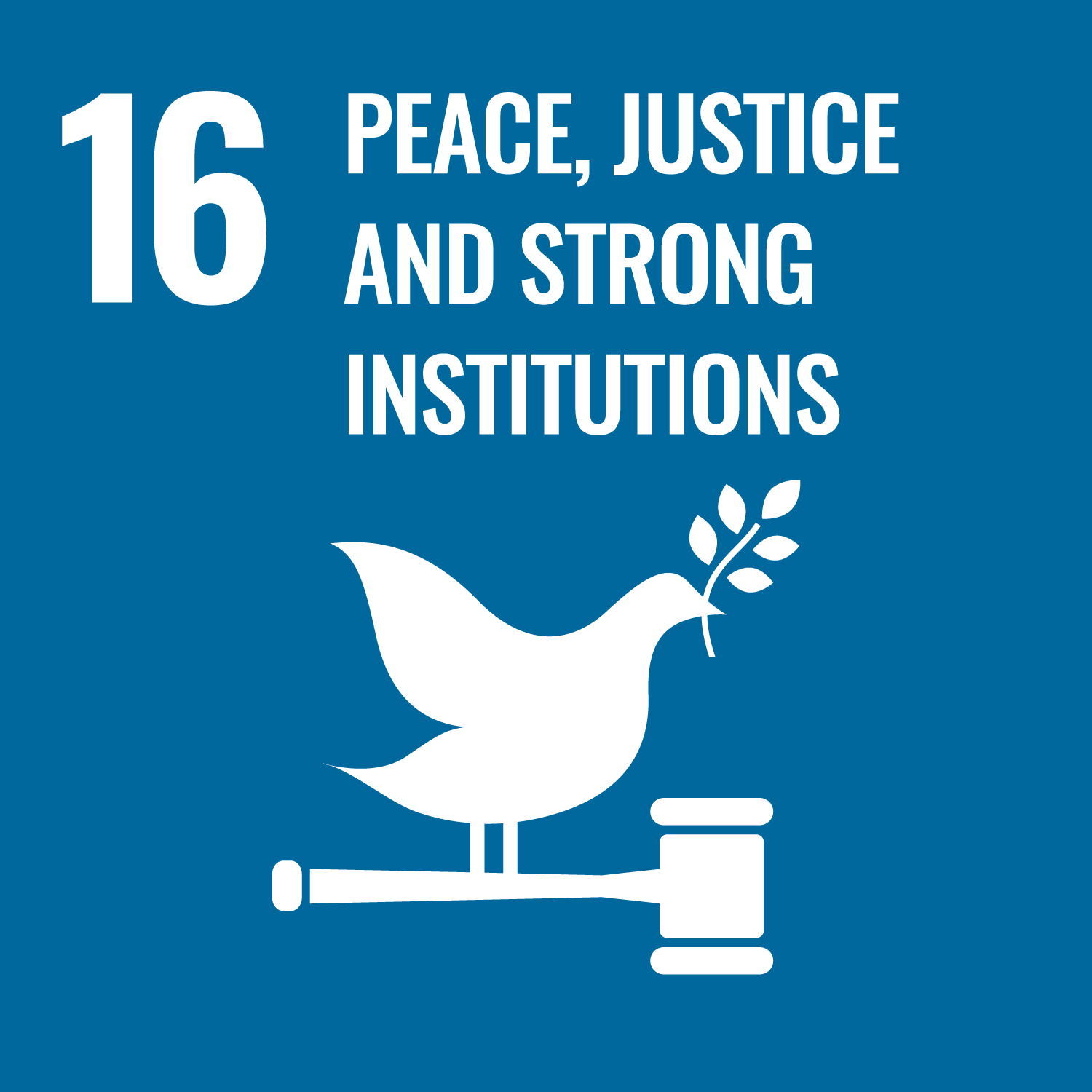You can search for courses, events, people, and anything else.
We are determined to foster peaceful, just and inclusive societies which are free from fear and violence. There can be no sustainable development without peace and no peace without sustainable development.
PRIORITY STATEMENTS
SUSTAINABLE DEVELOPMENT GOALS
SDG 2.3: By 2030, double the agricultural productivity and incomes of small-scale food producers, in particular women, indigenous peoples, family farmers, pastoralists and fishers, including through secure and equal access to land, other productive resources and inputs, knowledge, financial services, markets and opportunities for value addition and non-farm employment.
SDG 2.4: By 2030, ensure sustainable food production systems and implement resilient agricultural practices that increase productivity and production, that help maintain ecosystems, that strengthen capacity for adaptation to climate change, extreme weather, drought, flooding and other disasters and that progressively improve land and soil quality.
SDG 5.5: Ensure women’s full and effective participation and equal opportunities forleadership at all levels of decision-making in political, economic and public life.
SDG 10.2: By 2030, empower and promote the social, economic and political inclusion of all, irrespective of age, sex, disability, race, ethnicity, origin, religion or economic or other status.
SDG 10.3: Ensure equal opportunity and reduce inequalities of outcome, including by eliminating discriminatory laws, policies and practices and promoting appropriate legislation, policies and action in this regard.
SDG 16.7: Ensure responsive, inclusive, participatory and representative decision-making at all levels.
SNAPSHOT
Social inclusion, food and food security, Australia
- Almost all (90%) of our fresh fruit and vegetables, meat, milk and eggs sold in supermarkets are domestically produced.
- An estimated 2.9 million people (13.3% of Australia’s population) are living below theinternationally-accepted relative poverty line.
- Nearly one million Australian children go without breakfast or dinner every day and two million Australians rely on food relief every year.
- In Western Sydney 'food deserts' where healthy food is not easily available coincide with areas with higher rates of type 2 diabetes. Residents in Blacktown have a three times greater risk of developing diabetes than in more affluent coastal suburbs such as Mosman.
Environmental justice covers inadequate access to healthy food, inadequate transportation, air and water pollution and unsafe homes. For Western Sydney residents – according to ACOSS Australian Council of Social Security – postcode can also determine access to health and education services. Women are 10% more likely to experience poverty than men because women tend to have lower employment outcomes and wages, are more likely to be in unpaid caring roles, and have reduced access to financial resources in retirement (ACOSS 2016). Family, domestic and sexual violence is a major health and welfare issue in Australia where one in six (i.e. 1.6 million) women have experienced physical and/or sexual violence by a cohabiting partner since age 15 (Australian Institute of Health and Welfare 2018).
Food security, as defined by the United Nations Food and Agriculture Organization (FAO), is when ‘all people, at all times, have physical, social and economic access to sufficient, safe and nutritious food to meet their dietary needs and food preferences for an active and healthy life’. Food access is an emerging health and equity issue for residents in Western Sydney where ‘food deserts’ have been mapped indicating there is limited access to fresh, nutritious food. A higher prevalence of food insecurity has been reported among vulnerable and marginalised communities and, conversely, more than half of Western Sydney’s population is overweight, which means an increased risk of disease and chronic health issues in our communities.19 People experience food insecurity due to: a lack of resources (including financial resources and other resources such as transport); lack of access to nutritious food at affordable prices; lack of access to food due to geographical isolation; and lack of motivation or knowledge about a nutritious diet.20 This has significant implications for the way we plan communities and while jobs, transport and urban amenities are key features of urban planning health should also be a priority. By increasing access to green space and affordable fresh food, it will be possible to reduce the rates of lifestyle-related diseases like type 2 diabetes.
Linking consumption with production, environmental activist, cultural critic and farmer Wendell Berry argues that ‘eating is an agricultural act’.21 All humans are connected either directly or indirectly to agriculture in that how we shop and eat shapes how our landscapes and environment is treated. Agriculture is the single largest employer in the world, providing livelihoods for 40% of today’s global population with the majority of these via small, subsistence farming. The current, dominant agricultural practice in Australia since the 1950s is industrial agriculture that has high-external inputs and has caused deforestation, water scarcities, biodiversity loss, soil depletion and high levels of greenhouse gas emissions.22 Agroecology is an integrated approach that simultaneously applies ecological and social concepts and principles to the design and management of food and agricultural systems. It seeks to optimise the interactions between plants, animals, humans and the environment while taking into consideration the social aspects that need to be addressed for a sustainable and fair food system.
STRATEGIC ACTIONS TO 2030
- Deliver 21C Curriculum Challenge ‘Future thinkers’ to develop graduates that are creative, inquiry-led, multidisciplinary, novel solution-oriented thinkers who can thrive in a digital world;
- Master of Human Rights, Diversity and Gender Equity; and
- Graduate Certificate in SDG policy, prosperity and development.
- Implement ethical and local food procurement policies and practices across all commercial food outlets;
- Incorporate inclusion spaces across the campus network; and
- Integration of the Hawkesbury Farm regenerative agriculture and holistic pasture management as a key Living Lab.
- UNESCO Chair for Human Rights, Diversity and Gender Equity; and
- Incorporate agroecological principles into the AgriPark at Hawkesbury campus with committed industry partners i.e. Australian Food Sovereignty Alliance.
- Connect and embed the Whitlam Institute across key institutional portfolios; and
- Centre of Excellence in Peri-Urban Futures for integrated agri-industry education with School of Science, TAFE and secondary schools.
EXPLORE OTHER PRIORITY STATEMENTS
Embrace Indigenous knowledges for pathways to sustainability and Caring for Country.
Value biodiversity linking human wellbeing to environmental health.
Enable urban resilience and adaptive capacity in our region.
Step up efforts to support climate action in our region.
Enact new visions for economic transitions through ethical economic and ecological relationships.
Harness the benefits of AI and automation in planning for sustainability.
Collaborate with regional, national and international organisations across all sectors to deliver impact across these priority statements.
Engage with the Strategy
Browse the 'PEACE' themed submissions below or submit your own work which supports the strategy by clicking the button below.






